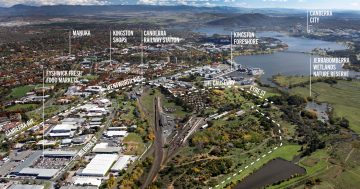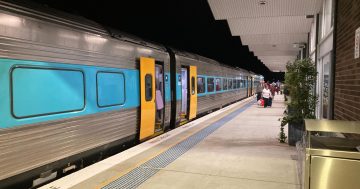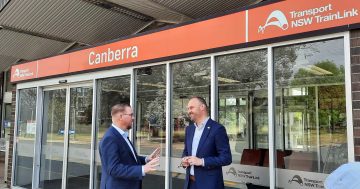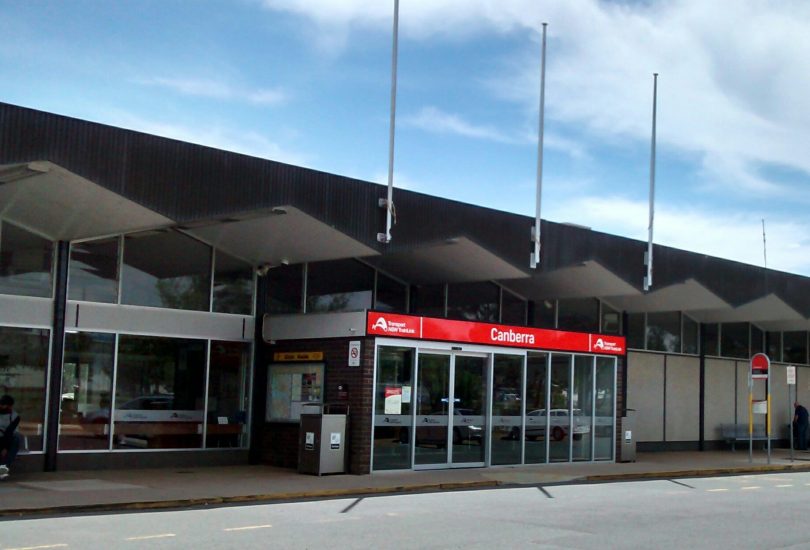
Canberra Railway Station at Kingston: Moving it would free up the land for development in East Lake. Photos: File.
The ACT Government should again consider moving the Canberra railway station in Kingston to Ipswich Street in Fyshwick, according to a local business group.
The move is included in the Fyshwick Business Association’s Budget submission, which also calls for a land swap that would see a proposed recycling centre, expanded metal recycling plant and associated rail freight terminal in Ipswich Street relocate to Hume.
This would open up the possibility of moving the rail passenger terminal in Kingston to the Ipswich Street site, freeing up an enormous parcel of land for a new development in Kingston as part of the East Lake housing proposal, the association says.
Association president Rob Evans says the Government had first considered the idea some years ago as part of the East Lake Renewal draft plan, and the association believed it was a great idea.
“The Ipswich Street block is ready-made for it,” Mr Evans said. “It makes a lot of sense to have the airport, rail and buses connected in such a central place as Fyshwick, where you can go to anywhere in Canberra at a whim in any direction.”
Moving Canberra Railway Station from Kingston was first mooted by then Planning Minister Andrew Barr in 2007 when he unveiled the East Lake Renewal draft plan.
It provided for options to relocate the railway from Kingston to possible sites near the Monaro Highway, or Newcastle Street west near what is now the Canberra Outlet Centre, or Newcastle Street east.
According to the East Lake draft report, moving the railway station would enable the development of a large parcel of land now occupied by railway yards in Kingston to be integrated within the urban fabric of East Lake. A corridor for future light rail would be retained.
Mr Evans said the association had consulted with a number of highly prominent people in town planning before deciding to put it back on the table for the ACT Government to consider.
He said the windfall from the sale and development of the Kingston station land would more than cover the cost of developing a new station in Fyshwick.
He said that with the current controversy over the waste proposals it would be a win for all parties if they were moved to Hume, which was also in need of investment.
The association believes waste facilities have no place in a ‘modern and evolving’ Fyshwick but Hume is the ideal location.
“We believe that there is a strong argument for the logical, alternative solution of relocating the waste handling/transfer facilities to appropriately zoned greenfield locations in the industrial suburb of Hume (adjacent to or near the rail facility),” the submission says.
“Of course, this would necessitate some improved infrastructure within the Hume precinct to accommodate the new facilities – this would be required here in Fyshwick anyway, although we believe that any such work could be undertaken more efficiently and economically in Hume.”
It says the idea is consistent with the ACT Government’s own strategic policy objectives of creating a resource recycling centre of innovation at Hume.
“It is good policy and ought to be consistently implemented,” the association says.
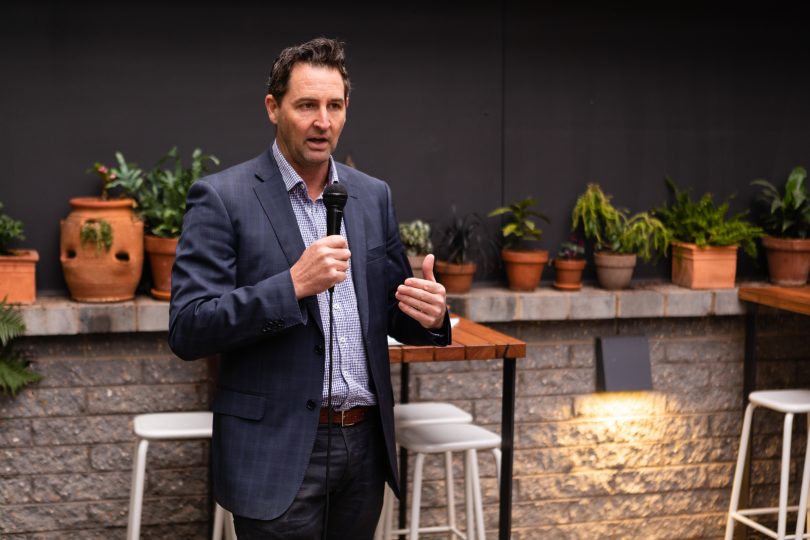
Rob Evans presenting at Fyshwick Business Council Meeting.
It says a land swap for 16 Ipswich Street, where the recycling plant and rail is proposed, would be a clear and tangible commitment to that policy.
The association argues that waste collection contractors already travel to Mugga Lane/Hume, and the move would keep those trucks out of Fyshwick.
Hume also has room for the recycling industry to grow while any expansion in Fyshwick would come at the expense of existing high-value businesses.
Concentrating waste and recycling facilities in Hume would also minimise the potential impacts on the inner south Canberra community in Narrabundah, Kingston and Griffith.
Mr Evans said the Territory had a large number of sites available in Hume that are directly adjacent to the old rail line on the NSW/ACT border.
“The FBA believes that it would be preferable to reactivate this line and explore a range of additional economic development opportunities that rail freight could generate to this location given the myriad transport and logistical operations already in Hume,” he said.
Adam Perry’s Access Recycling is part of the Capital Recycling Solutions (CRS) consortium planning to develop a waste processing facility on Ipswich street and a recently approved rail freight terminal.
Access also wants to upgrade its metal recycling facility next door in Lithgow Street.
The recycling proposals have been the catalyst for the establishment of the Fyshwick Business Association which sees the light industrial precinct as home to a more gentrified business community that is incompatible with a waste transfer and recycling industry.
The issue is complicated by separate development applications for operations that the association believes will eventually be related.
The planning authority is still assessing CRS’s environmental impact statement for what it says will be a state-of-the-art recycling plant and transfer station that will help solve the ACT’s waste problem, and the Access plan to modernise its facility.
Mr Perry argues the Access proposal is consistent with the area, which is surrounded by other industrial sites.












